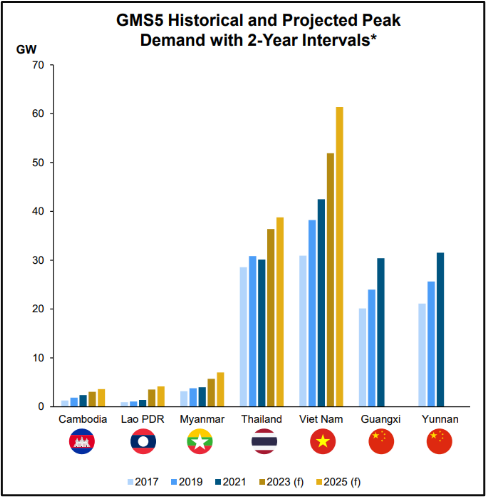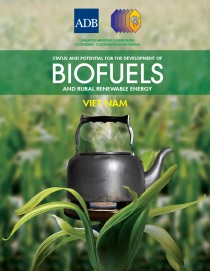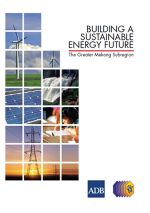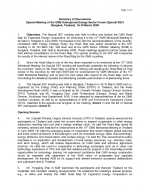Life Beyond the Dam
Though a hydropower project relocated villagers, it also brought electricity, roads, and schools to a remote valley.
Greater Mekong Subregion countries are in varying stages of economic development but share common goals concerning energy security and environmental protection. Progress have been made in promoting renewable energy, clean fuels, and energy efficiency, but new energy solutions remain crucial to the subregion’s advancement.
The GMS Economic Cooperation Program Strategic Framework 2030 (GMS-2030) emphasizes cross-border power trade, establishment of regional grid codes, development of regional markets, and expanding clean energy investments with a greater role for the private sector.
The Regional Power Trade Coordination Committee (RPTCC) managed regional power trade in the subregion from 2004–2022. In July 2022, at the 29th RPTCC meeting, the committee formally transitioned to the GMS Energy Transition Taskforce (ETTF). Among other things, the transition to ETTF ushers in closer energy cooperation with the Association of Southeast Asian Nations (ASEAN) and its initiatives, such as the ASEAN Power Grid.
Energy consumption in the GMS countries has grown intensively as their economies develop, driven mostly by residential and industrial sectors. Demand is forecasted to increase materially over the medium term.

GMS countries have used different approaches to increase access to reliable, affordable, and low-carbon energy.
See initiatives of the GMS Energy Transition Task Force to promote energy security in the subregion in a sustainable manner.
Related
Key Energy Resources
Focal Persons at the Asian Development Bank
Hyunjung Lee (lead)
Energy Sector Office
Sectors Group
Atsumasa Sakai
Energy Sector Office
Sectors Group
Other Concerned Staff & Consultants
Joao Aleluia
Energy Sector Office
Sectors Group
Architrandi Priambodo
Energy Sector Office
Sectors Group
Jeffrey Almera
Energy Sector Office
Sectors Group
Pinsuda Alexander
Regional Cooperation and Integration Unit
Southeast Asia Department
Rafaelita Jamon
Regional Cooperation and Integration Unit
Southeast Asia Department/GMS Secretariat
Send inquiries to GMS Secretariat.
Though a hydropower project relocated villagers, it also brought electricity, roads, and schools to a remote valley.
MANILA, PHILIPPINES (9 July 2010) - The Asian Development Bank will invest $15 million to support clean energy projects in the Greater Mekong Subregion and South Asia through the Mekong Brahmaputra Clean Development Fund.

This study aims to provide a preliminary assessment of the long-term commercial viability of a biofuel program in Viet Nam.

This study is one of the first steps to improve understanding of the impacts of biofuel development on agriculture and economy, with specific focus on the Greater Mekong Subregion (GMS).

This is the summary of discussions at the 7th Meeting of the Planning Working Group (PWG-7), 8th Meeting of the Focal Group (FG-8), and 8th Meeting of the Regional Power Trade Coordination Committee (RPTCC-8) in Luang Prabang, Lao People's Democratic Republic on 25 to 27 November 2009.

This road map for expanded cooperation in the energy sector in the Greater Mekong Subregion takes into account GMS Strategic Framework 2002-2012 and the need for improved energy security, better utilization of energy resources, and mutually beneficial energy trade, to meet national and regional energy needs in a sustainable manner.

Developing the energy sector will help realize an integrated and prosperous Mekong subregion.

The SEF-3 meeting was held primarily to jumpstart the implementation of the GMS Road Map for Expanded Energy Cooperation, which was endorsed at the 15th GMS Ministerial Meeting held in Thailand in June 2009.

The Special SEF meeting was held to refine and finalize the GMS Road Map for Expanded Energy Cooperation, for endorsing it to the 15th GMS Ministerial Meeting to be held in Thailand in June 2009. Formulated in line with the recommendations of the recently completed GMS Energy Strategy Study, the Road Map was earlier presented at the SEF meeting in Ho Chi Minh City, Viet Nam and at the GMS Senior Officials' Meeting (SOM) in Bangkok, Thailand, both held in November 2008. These meetings agreed to further review and hold internal consultations on the Road Map.